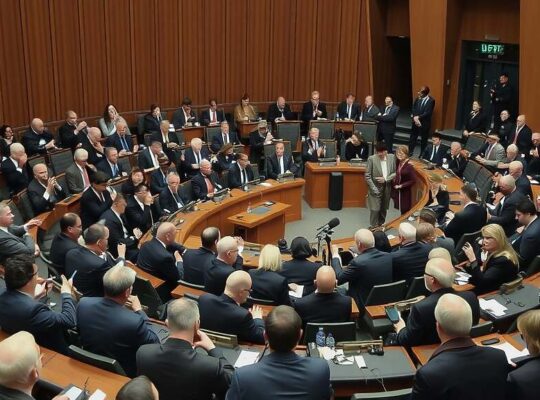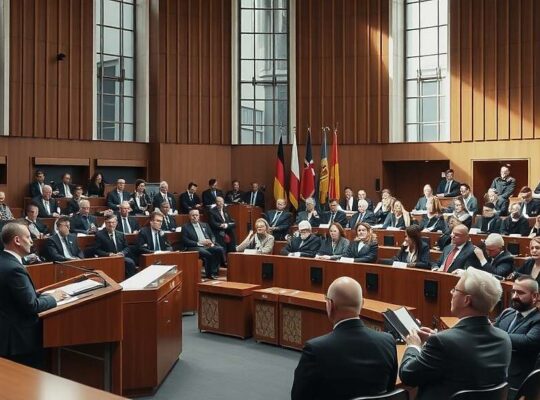The much-debated reform of Germany’s property tax (Grundsteuer) appears, at least superficially, to have avoided the promised windfall for the state, according to newly released data from the Federal Ministry of Finance. Figures reported by business magazine “Capital” show aggregate property tax revenues for municipalities across all German states totaled approximately €7.7 billion between January and June 2025. This figure mirrors the overall revenue collected in 2023 (€15.5 billion for the entire year) and remains marginally below the figures for the first half of 2024 (€16.1 billion).
The outcome, while seemingly validating former Finance Minister Olaf Scholz’s pledge that the reform wouldn’t increase overall tax intake, masks a much more complex and potentially volatile situation. While the aggregate revenue remains relatively stable, local municipalities have experienced shifts in individual taxpayer burdens. The restructuring of property valuations, a core element of the reform, has inevitably led to some owners facing higher taxes and others experiencing relief. Many municipalities significantly adjusted their collection rates to account for the revised assessments.
The political ramifications of the reform remain significant. Lobbying groups representing property owners actively encouraged widespread appeals against property tax assessments, arguing that the reform itself, introduced to rectify prior constitutional shortcomings in the outdated system, ironically constitutes a violation of the constitution. Their claims centered on the potential for significant financial burdens on homeowners. The initial figures for the first half of 2025 do not immediately confirm these claims on a national scale, but they do not negate the underlying discontent.
Analysts suggest that while the state’s coffers may not have benefited significantly, the ongoing wave of appeals and the unpredictable impact on individual homeowners could trigger a protracted legal battle and ultimately undermine the reform’s intended stability. The government’s initial promise of a revenue-neutral reform rings increasingly hollow when considered against the backdrop of ongoing uncertainty and the potential for escalating legal challenges. The long-term consequences of the Grundsteuer reform remain to be seen and the first-half data offers only a partial and potentially misleading, snapshot of the unfolding situation.












